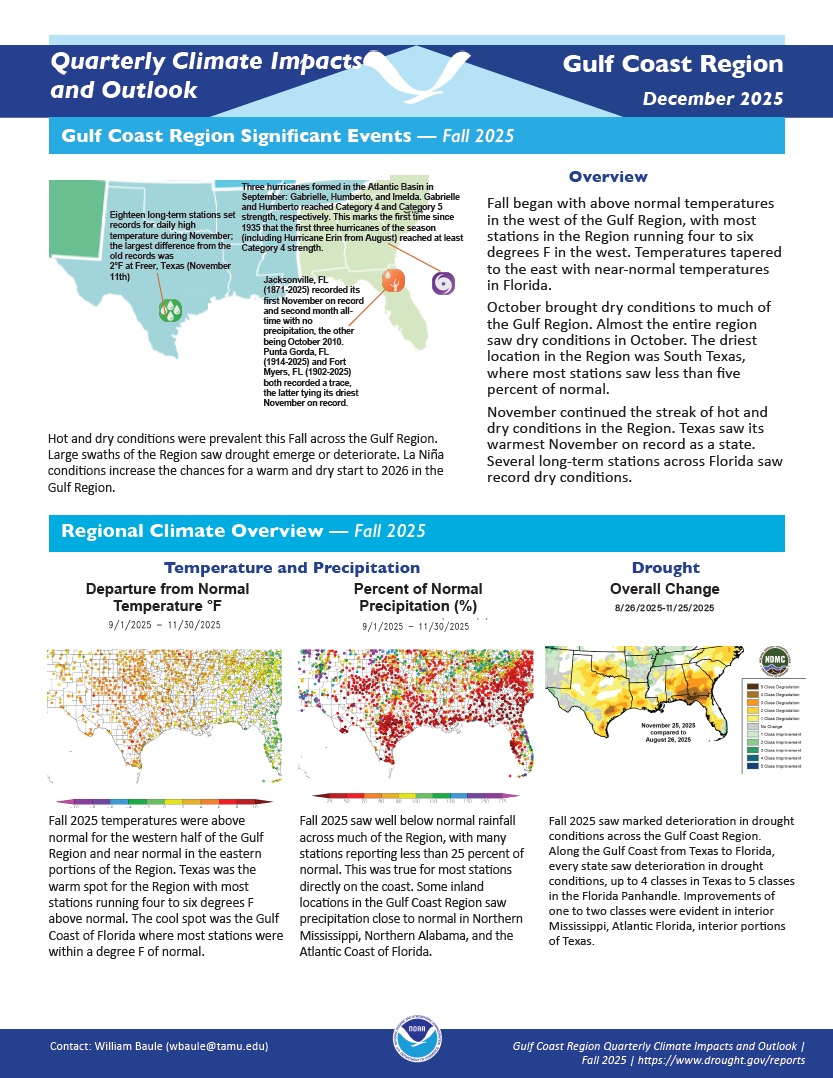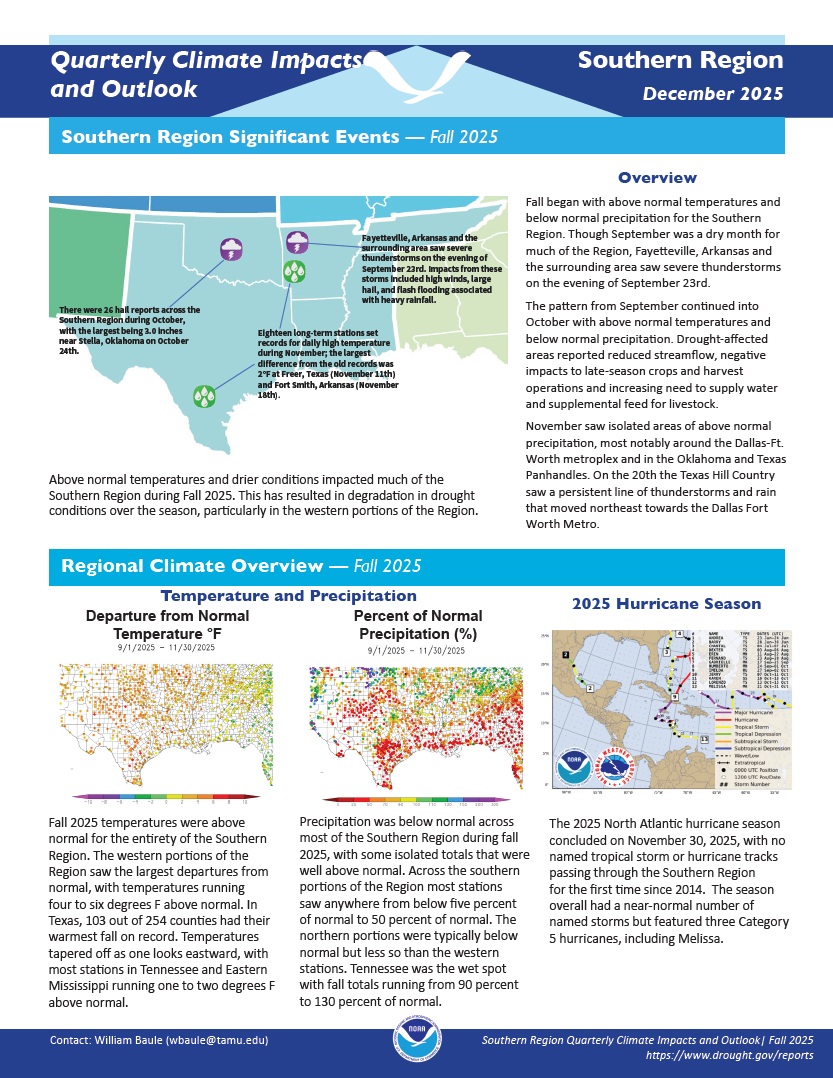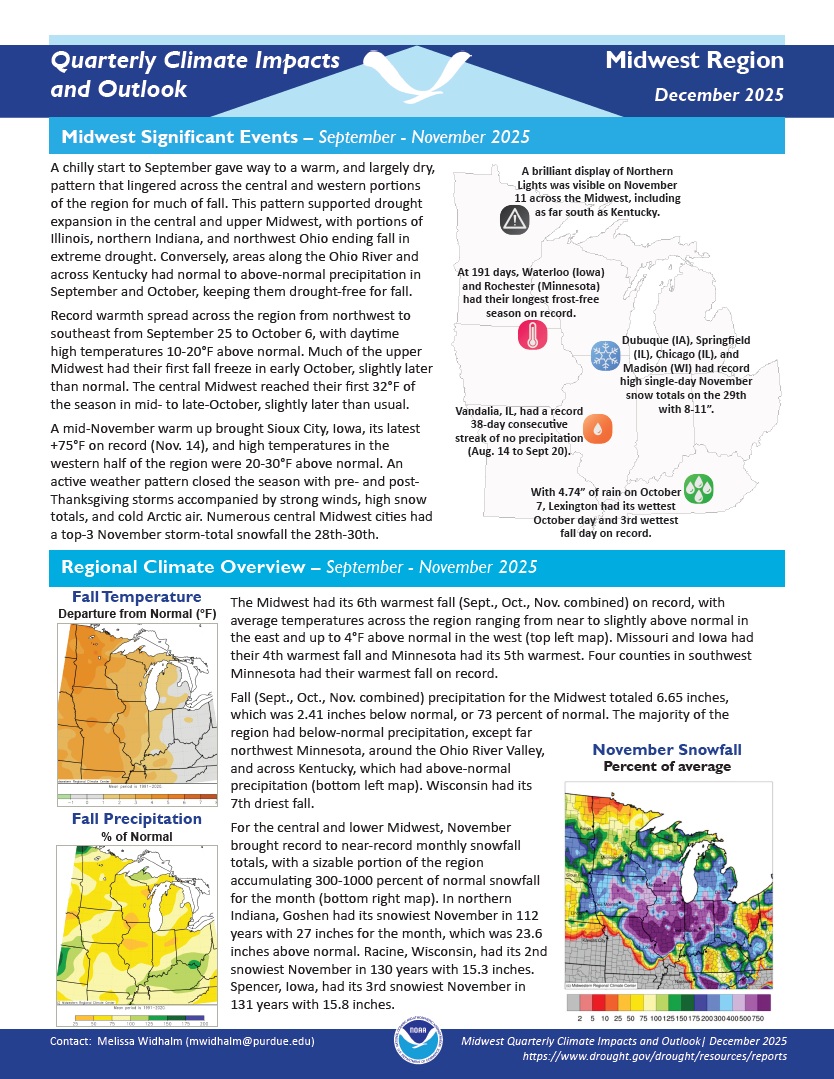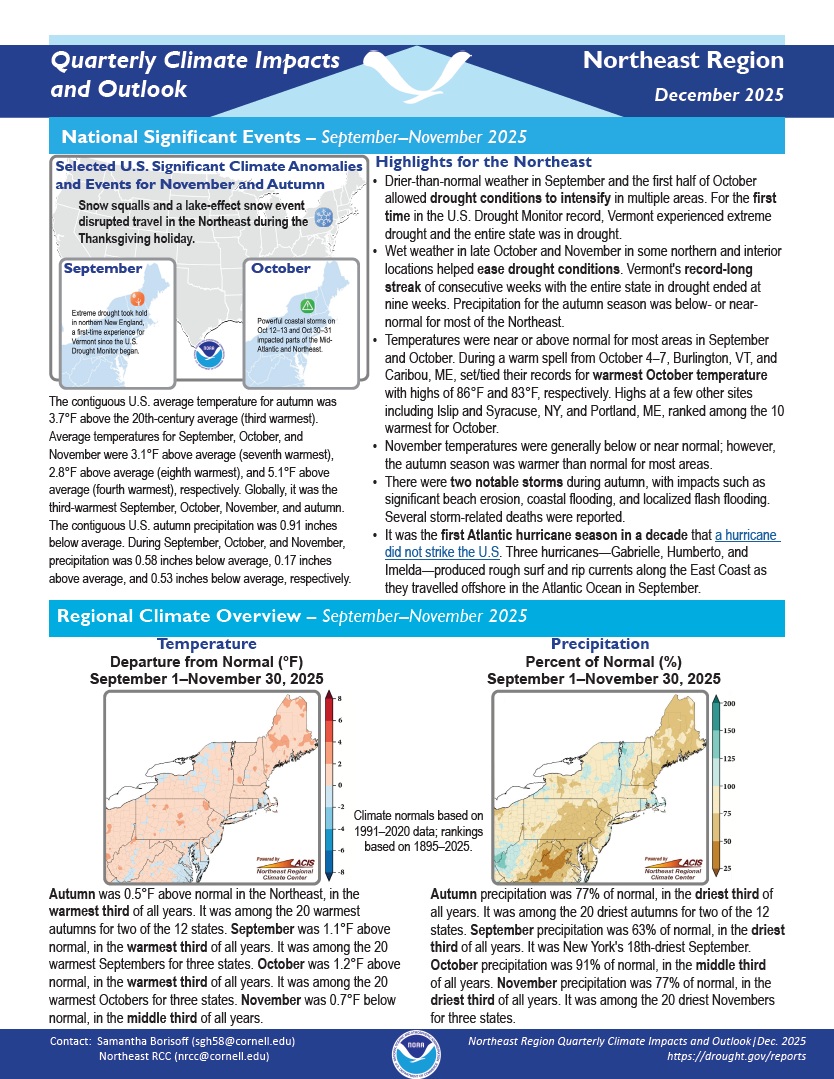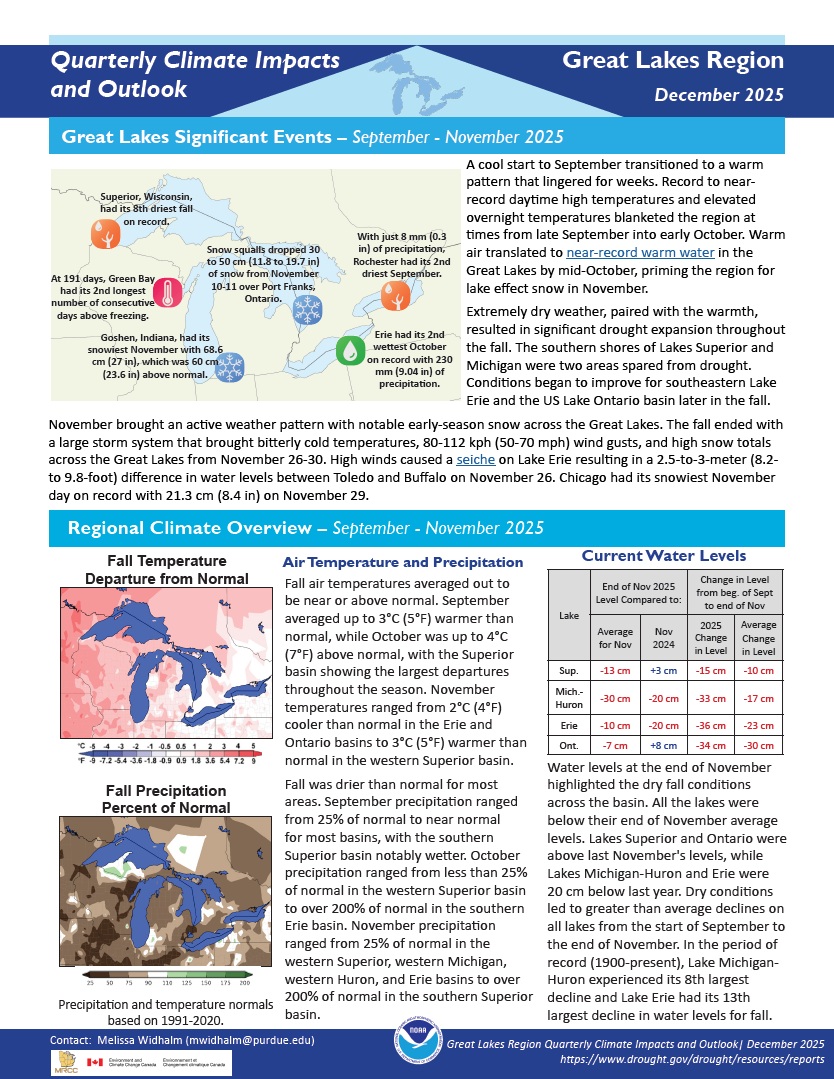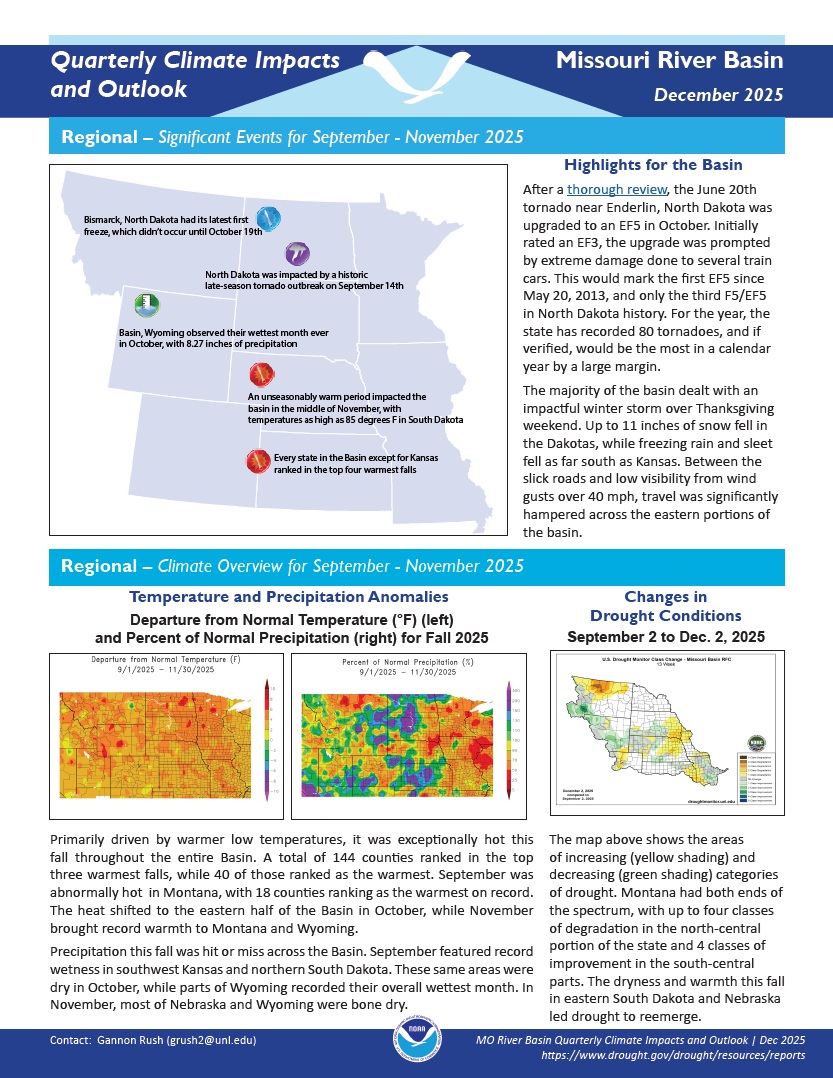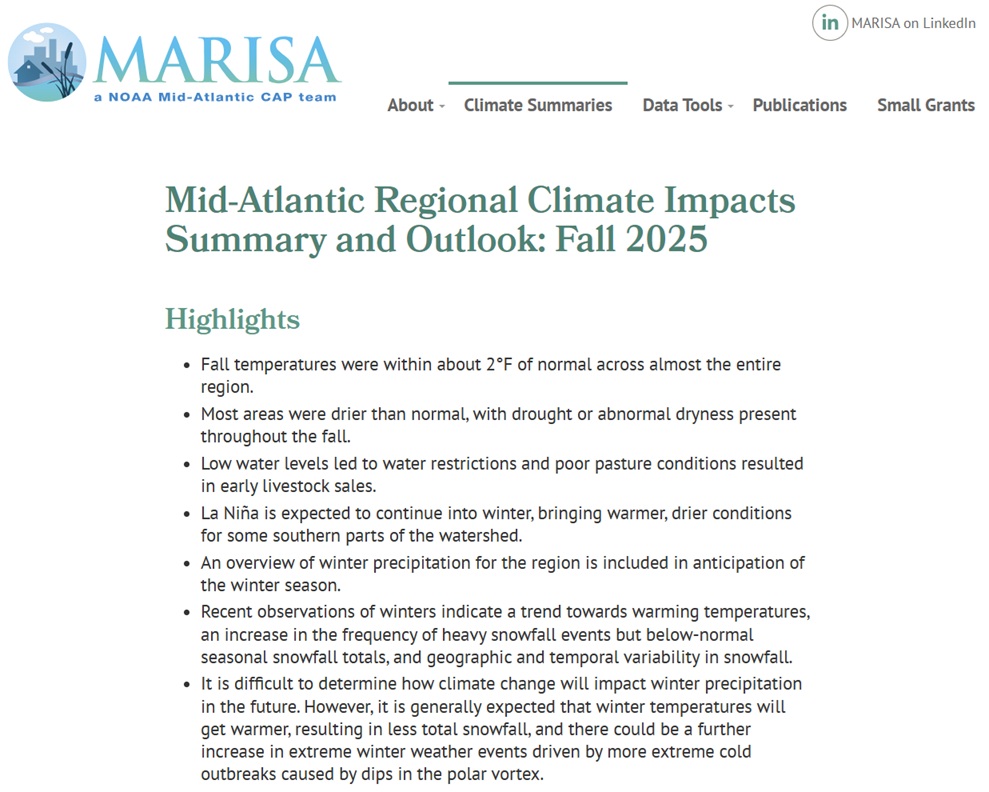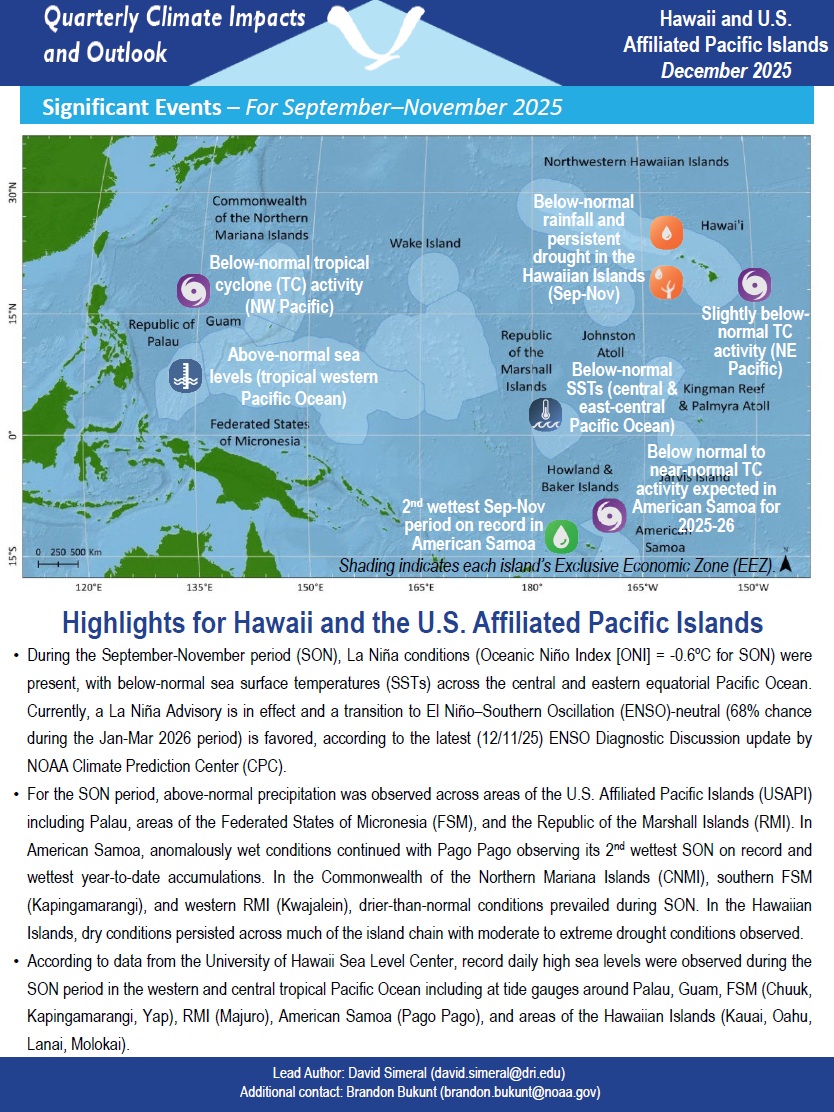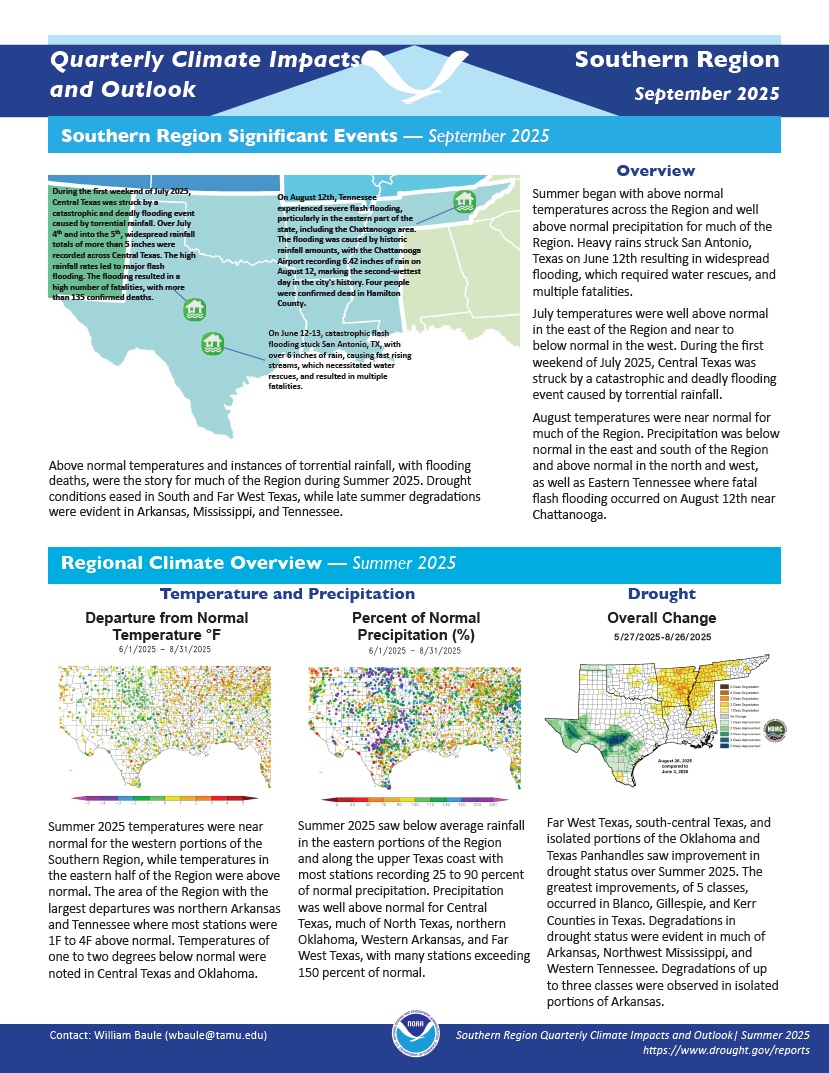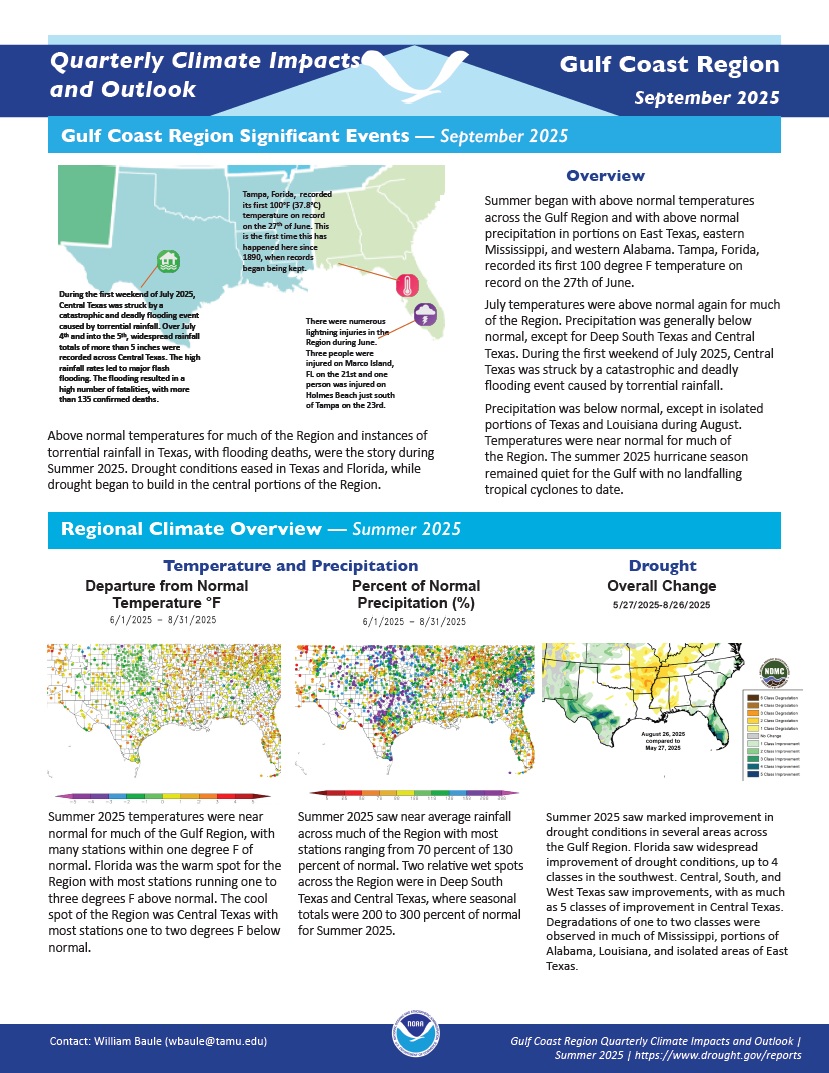Quarterly Climate Impacts and Outlook for the Gulf Coast Region for September–November 2025. Dated December 2025.
Fall 2025 temperatures were above normal for the western half of the Gulf Region and near normal in the eastern portions of the Region. Fall 2025 saw well below normal rainfall across much of the Region, with many stations reporting less than 25 percent of normal. This was true for most stations directly on the coast.
Quarterly Climate Impacts and Outlook for the Southern Region for September–November 2025. Dated December 2025.
Fall 2025 temperatures were above normal for the entirety of the Southern Region. The western portions of the Region saw the largest departures from normal, with temperatures running four to six degrees F above normal. Precipitation was below normal across most of the Southern Region during fall 2025, with some isolated totals that were well above normal.
Quarterly Climate Impacts and Outlook for the Midwest Region for September–November 2025. Dated December 2025.
The Midwest had its 6th warmest fall on record, with average temperatures across the region ranging from near to slightly above normal in the east and up to 4°F above normal in the west. Fall precipitation for the Midwest totaled 6.65 inches, which was 2.41 inches below normal, or 73 percent of normal.
Quarterly Climate Impacts and Outlook for the Northeast Region for September–November 2025. Dated December 2025.
Autumn was 0.5°F above normal in the Northeast, in the warmest third of all years. It was among the 20 warmest autumns for two of the 12 states. Autumn precipitation was 77% of normal, in the driest third of all years. It was among the 20 driest autumns for two of the 12 states.
Quarterly Climate Impacts and Outlook for the Great Lakes Region for September–November 2025. Dated December 2025.
Fall air temperatures averaged out to be near or above normal. Fall was drier than normal for most areas. Dry conditions led to greater than average declines on all lakes from the start of September to the end of November. In the period of record (1900-present), Lake Michigan-Huron experienced its 8th largest decline and Lake Erie had its 13th largest decline in water levels for fall.
Quarterly Climate Impacts and Outlook for the Missouri River Basin for September–November 2025. Dated December 2025.
Primarily driven by warmer low temperatures, it was exceptionally hot this fall throughout the entire Basin. A total of 144 counties ranked in the top three warmest falls, while 40 of those ranked as the warmest. Precipitation this fall was hit or miss across the Basin.
Quarterly Climate Impacts and Outlook for the Mid-Atlantic Region for September–November 2025. Dated December 2025.
Fall temperatures were within about 2°F of normal across almost the entire region. Most areas were drier than normal, with drought or abnormal dryness present throughout the fall. Low water levels led to water restrictions and poor pasture conditions resulted in early livestock sales.
Quarterly Climate Impacts and Outlook for the Pacific Region for September–November 2025. Dated December 2025.
Quarterly Climate Impacts and Outlook for the Southern Region for June–August 2025. Dated September 2025.
Summer 2025 temperatures were near normal for the western portions of the Southern Region, while temperatures in the eastern half of the Region were above normal. Summer 2025 saw below average rainfall in the eastern portions of the Region and along the upper Texas coast. Precipitation was well above normal for Central Texas, much of North Texas, northern Oklahoma, Western Arkansas, and Far West Texas.
Quarterly Climate Impacts and Outlook for the Gulf Coast Region for June–August 2025. Dated September 2025.
Summer 2025 temperatures were near normal for much of the Gulf Region, with many stations within one degree F of normal. Summer 2025 saw near average rainfall across much of the Region with most stations ranging from 70 percent of 130 percent of normal.


